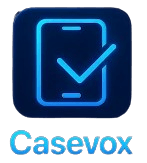Capital Collections Debt Collection Harassment❓
Tired of Capital Collections Debt Collection Harassment? Wish there was a way to make the calls stop? Is Capital Collections constantly calling and harassing you? Does your phone ring every day, several times per day, because Capital Collections is calling you to demand payment? Threatening you with legal action? Has Capital Collections ever used abusive or profane language when speaking with you on the phone? If so, Capital Collections may be violating your legal rights. Stop the harassment.
The Fair Debt Collection Practices Act, also known as the FDCPA, protects consumers’ rights in the context of debt collection. In other words, debt collectors must adhere to a certain set of rules when they are pursuing consumers who owe money. If a collector violates the FDCPA, you can sue the collector in court. Consumers have the right to receive a written notice from debt collectors within a specified timeframe, detailing the debt and their rights to dispute it. The law allows consumers who have been victims of harassment from debt collectors to get the calls to stop in addition to recover statutory damages of up to $1,000, plus attorney fees and court costs. Debt collectors are also required to provide meaningful disclosure of their identity when making calls.
Consumers can request debt collectors to stop contacting them by issuing a cease and desist request.
Introduction to Debt Collection
Debt collection is the process of pursuing the payment of debts owed by individuals or businesses. Debt collectors use various methods to collect debts, including phone calls, letters, and emails. The debt collection industry is regulated by federal and state laws, which aim to protect consumers from abusive and unfair debt collection practices. The Fair Debt Collection Practices Act (FDCPA) is a federal law that regulates debt collection practices and provides consumers with protection from debt collectors who engage in abusive, deceptive, or unfair practices. Understanding these regulations can help you navigate interactions with debt collectors and ensure your rights are protected.
Is Capital Collections a Scam?
According to the Better Business Bureau website, Capital Collections has been in business since 1996.
Consumers should be aware of debt collection scams and verify the legitimacy of any debt collector contacting them.
Who is Capital Collections?
Capital Collections is third party debt collector located in Fresno, California.
🏛️ Capital Collections Address: 1221 Van Ness Ave Fl 2 Fresno, CA 93721-1720
📞 Phone: (559) 485-2127
📠 Fax: (559) 485-2356
Debt collectors must not misrepresent themselves as law enforcement officers, as this is prohibited by law.

Capital Collections Debt Collection Harassment Tactics
If Capital Collections engages in any of the following tactics, you may have a case:
- 🚫 Using profanity or abusive language
- ⏰ Calling you before 8:00 a.m. or after 9:00 p.m.
- 📞 Calling you multiple times per week
- 🗣️ Talking to others about your debt
- 🏢 Calling your workplace
- ⚖️ Threatening to sue you, harm you, destroy your credit, or use illegal tactics to extract payments
- ❌ Telling you or anyone else that you’ve committed a crime
- 🔁 Calling repeatedly for the wrong person
- 📜 Failing to notify you of your right to dispute the debt
- 💰 Trying to collect more than legally allowed
Capital Collections Phone Number
Are you receiving any harassing phone calls from this number?
- 📲 559-485-2127
If so, you may be a victim of Capital Collections debt collection harassment. The list above is not all the numbers that Capital Collections uses. Also, calls can be from different numbers and it still be Capital Collections calling you. Repeated or continuous telephone calls intended to annoy or harass are prohibited by law. Contact our office right away so we can start the process to stop Capital Collections from calling you illegally. Above all, no one should live with harassment.
Engaging a person in a telephone conversation repeatedly with the intent to harass is a violation of legal regulations.
The Debt Collection Practices Act
The Debt Collection Practices Act, also known as the FDCPA, is a federal law that regulates debt collection practices. The law prohibits debt collectors from engaging in abusive, deceptive, or unfair practices, such as using obscene or profane language, making false or misleading representations, or using threats of violence. The FDCPA also requires debt collectors to provide consumers with certain information, such as the amount of the debt and the name of the creditor. Debt collectors who violate the FDCPA can face legal action, including fines and damages. This law is designed to protect consumers and ensure that debt collection is conducted fairly and respectfully.

Credit Report and Debt Collection
Credit reports play a crucial role in debt collection. Debt collectors often use credit reports to obtain information about a consumer’s credit history and to determine the best way to collect a debt. However, debt collectors must comply with the Fair Credit Reporting Act (FCRA), which regulates the use of credit reports. The FCRA requires debt collectors to ensure that the information in a consumer’s credit report is accurate and up-to-date. Consumers have the right to dispute errors in their credit report and to request that debt collectors stop reporting inaccurate information. Keeping your credit report accurate is essential for maintaining your financial health and protecting yourself from unfair debt collection practices.
Responding to Debt Collection Notices
When a consumer receives a debt collection notice, they should respond promptly to avoid further action. The consumer should verify the debt and ensure that it is valid. If the debt is valid, the consumer should consider paying the debt or negotiating a payment plan with the debt collector. If the debt is not valid, the consumer should dispute the debt in writing and provide evidence to support their claim. Consumers should also be aware of their rights under the FDCPA and should not hesitate to take legal action if a debt collector engages in abusive or unfair practices. Taking these steps can help you manage your debts effectively and protect your rights.
State Laws and Regulations
In addition to federal laws, such as the FDCPA, state laws and regulations also govern debt collection practices. State laws may provide additional protection for consumers and may impose stricter regulations on debt collectors. For example, some states have laws that prohibit debt collectors from making phone calls to consumers at certain times of the day or that require debt collectors to provide consumers with certain information before collecting a debt. Consumers should be aware of the laws and regulations in their state and should not hesitate to take legal action if a debt collector violates these laws. Capital Collections LLC, for instance, must comply with state laws and regulations when collecting debts from consumers. Knowing your state-specific rights can give you an added layer of protection against unfair debt collection practices.

CONSUMER RIGHTS LAW FIRM, PLLC
Consumer Rights Law Firm PLLC is a law firm that specializes in helping clients who are facing harassment from debt collectors in any form, including telephone communication. Contact a legal professional to stop Capital Collections debt collection harassment. Our office has been assisting consumers since 2010. We have an A+ rating with the Better Business Bureau.
We offer a free consultation for individuals affected by debt collection harassment, including those targeted by Capital One Bank.
If you are interested in learning more about how to safeguard yourself and prevent Capital Collections debt collection harassment, call us at (877)700-5790 for immediate assistance or visit our website.
Success Stories
- 🏆 “I was constantly getting harassed by debt collectors at all hours of the day. Consumer Rights Law Firm PLLC stepped in and immediately put a stop to it. They knew exactly what to do and handled everything professionally. I finally got peace of mind!”
- 🏆 “I didn’t even know debt collectors were violating my rights until I spoke to this firm. They explained everything clearly, took over communication, and even helped me get compensation. Highly recommended!”
- 🏆 “I was being threatened and embarrassed by aggressive collection calls. The attorneys at Consumer Rights Law Firm PLLC shut them down quickly. I no longer fear picking up my phone.”
Check out a links below for more information:
FAQs
What is debt collection harassment by Capital Collections?
Harassment includes excessive, threatening, or abusive calls made to collect a debt. Under the FDCPA, Capital Collections is prohibited from repetitive, abusive calls intended to annoy or intimidate you.
How many times can Capital Collections legally call me?
Debt collectors like Capital Collections can only call once per day and up to seven times in a 7-day span unless you’ve agreed otherwise or they believe they have wrong contact info.
Can I request Capital Collections to stop calling me?
Yes. You can send a written cease-and-desist letter asking them to stop. Once received, they must stop all calls (except to inform you they won’t continue).
What is validation of debt and how do I request it?
Within 5 days of their first contact, you can request debt validation in writing. Capital Collections must then provide verification—such as creditor info and balance—before continuing collection activities.
Can Capital Collections sue me over an old debt?
Yes, they can sue, but only if the debt is within the statute of limitations in your state. If they sue and win a judgment, they may garnish wages or place liens.
How long before a debt becomes uncollectible?
Debts become time-barred based on state law—often 3-6 years. After that, collectors cannot sue, though they may still attempt to contact you.
Can harassment from Capital Collections violate the law?
Yes. Under the FDCPA, repeated calls, threatening language, or deception are illegal. You may be entitled to damages up to $1,000 plus legal fees.
What should I do if Capital Collections continues to harass me?
Document every call (time, date, content), send a cease-and-desist in writing, then report the agency to the FTC and CFPB. You may also file a lawsuit for FDCPA violations.







